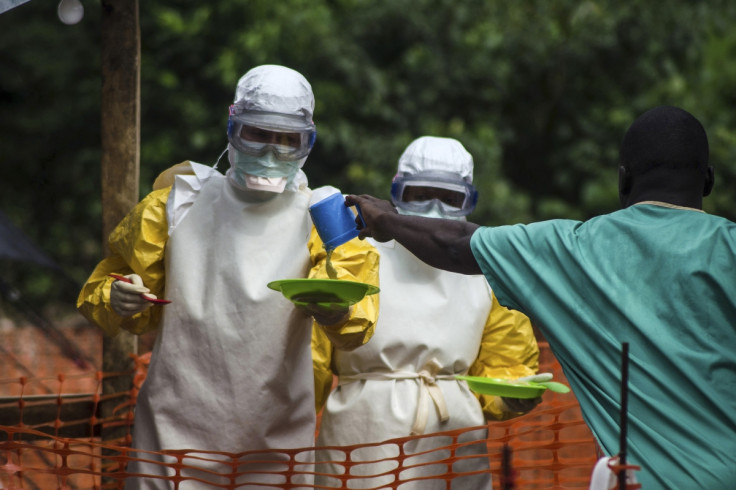Ebola: Sierra Leone Patients Refuse Treatment Over 'Witchcraft' Fears as Country Declares Emergency

Many infected patients in Sierra Leone are refusing to seek treatment for the Ebola virus over fears the disease is the work of witchcraft, as the president declares a public health emergency over deadly outbreak.
Doctor Benjamin Black, a 32-year-old volunteer with Doctors Without Borders, told the Daily Telegraph that some of those in infected areas of the country were not seeking treatment for the pathogen over superstitious fears.
Dr Black, who finished a four-day shift at a Kailahun treatment centre this week, said:
There is a section of population here who simply don't believe Ebola is real, they think it is witchcraft and so they don't come to the treatment centres.
"Sometimes, even those who turn up at clinics with symptoms of the disease will be resistant to the idea that they have it. They will say 'yes, people in my family have died already, but this is witchcraft rather than Ebola'."
Doctors Without Borders (Médecins San Frontières) said the crisis gripping Guinea, Liberia and Sierra Leone could spread to other continents and warned that there is no overall strategy to cope with the world's worst-ever outbreak of the disease.
Sierra Leone's president Ernest Bai Koroma declared a public health emergency on Thursday to curb the spread of the disease.
Koroma announced that the epicentres of the outbreak in the east would be quarantined and asked security forces to enforce the measures.
Over 670 people in West Africa have been killed since February with 224 fatalities recorded in Sierra Leone, according to the World Health Organisation. Among the deaths in the country has been Sheik Umar Khan, a leading doctor in the fight against Ebola.
More than 1,200 cases have so far been reported in Sierra Leone, Liberia and Guinea.
Fears that Ebola could reach the UK are rising as Foreign Secretary Philip Hammond has said the UK government is taking the outbreak "very seriously".
In the UK, a British man was tested for the disease after flying into Birmingham Airport from Benin, in Nigeria, via Paris. He was given the all clear after being taken to hospital as a precautionary measure after complaining of feeling feverish.
A second British man in his 20s was assessed for Ebola in Charing Cross Hospital in London this week, but his symptoms were determined to be unlinked to the virus, London24 reported.
Immigration Service Union general secretary Lucy Moreton said her members felt unprepared to deal with people coming to the UK with potential cases of the virus. The union leader said they needed more information on the threat.
© Copyright IBTimes 2024. All rights reserved.






